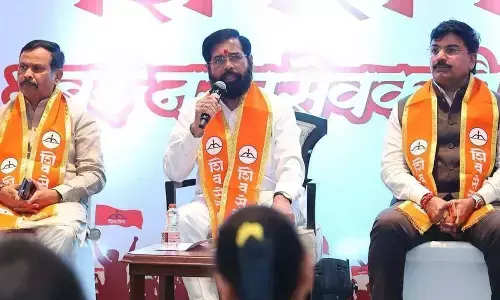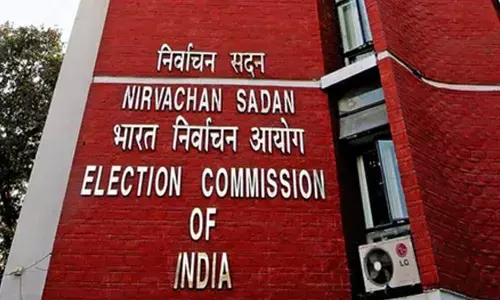McDonaldization: Fast food age in India

McDonaldization: Fast Food Age in India. The term Sociological Imagination was coined by the American Sociologist ‘C.Wright Mills’ in 1959, to describe the type of insight offered by the discipline of sociology.
.jpg) The term Sociological Imagination was coined by the American Sociologist ‘C.Wright Mills’ in 1959, to describe the type of insight offered by the discipline of sociology. Mills defined Sociological Imagination as “the vivid awareness of the relationship between experience and the wider society”. He defined Sociological Imagination in keeping mind that how the individual and society are dialectically linked.
The term Sociological Imagination was coined by the American Sociologist ‘C.Wright Mills’ in 1959, to describe the type of insight offered by the discipline of sociology. Mills defined Sociological Imagination as “the vivid awareness of the relationship between experience and the wider society”. He defined Sociological Imagination in keeping mind that how the individual and society are dialectically linked.
The Sociological Imagination enables us to grasp history and biography and the relations between the two within society. That is its task and promise, perhaps the most fruitful distinction with which the Sociological Imagination works is between ‘the personal troubles of the milieu ‘and the ‘public issues of social structure’. Troubles occur within the character of the individual and within the range of his immediate relations with other, they have to do with his self and with those limited areas of social life of which he is directly and personally aware. Issues have to do with matters that transcend these local environments of individual and the range of his inner life.
Sociological Imagination is the ability to see things socially and how people interact and influence each other. To have a Sociological Imagination, a person must be able to pull away from the situation and think from an alternative point of view. It is simply the capacity to shift from one perspective to another.
Another way of describing Sociological Imagination is the understanding that social outcomes are shaped by social context, actors and social actions, so sociological imagination in India is a unique pattern. In the contemporary world we belong in a sense to more than one society, when amidst by foreigners reference to our society may mean “Indian society” but when amongst fellow Indians we may use the term “our society” to denote a linguistic or ethnic community, a religious or caste or tribal society.
Understanding Indian society is like understanding world, I mean we can consider India as a laboratory of Sociological studies. After understanding what exactly Sociological Imagination means I found my location in my society in a different way, I can now able to know why people are like this. Why people do not use dustbins? Why people like to dominate each other? Or why people prefer the things as they like and link it to society?
In society Public and Private matters a lot with a degree of commitment, coming to India Private degree of commitment matters a lot than public, that means people are individual centric. I got the answer for why this is happening in India, the answer was that India is never a nation, people here live with a mind-set of their own country, own land, own business.
Indian society is very much imaginative, it has a great ancient history, and it is a moving society mainly from primitive to modern. Imagining a society in the way of transformation that too in a much diversified land makes India very interesting.
McDonaldization is a concept can be applied and studied in Indian society. It is the term first used by Sociologist ‘George Ritzer’ in his book “The McDonaldization of society”. He explains it occurrence when a culture possesses the characteristics of a fast food restaurants. It is a reconceptualization of rationalization or moving from traditional to rational modes of thoughts and scientific management.
Ritzer while explaining the concept of McDonaldization highlighted the five primary components of it. They are
-Efficiency
-Calculability
-Predictability
-control
-Culture
McDonaldization is a process of mixing the cultures that, to with Indian culture makes the studies interesting.
Yes, McDonaldization a new global culture, en route for transforming the traditional eating practices is now solidifying its roots in India too. The main reason behind its progress is the vast population and its growth, mainly the high percentage of middle class society in India.
Fast foods restaurants are one among them. India has a chain of fast foods (Chinese fast foods) emerged in the recent times, who expected that it would grow in such an advanced manner. I came to about fast food when I was in high school, different names of food items came to my notice. Anything that is advanced is first accepted by the society in the same way when fast food emerged I was not actually allowed to go, sit and eat there, a “social constraint” .Even when people started visiting such places, it was enjoyed by a male person only. Women visiting such places are considered as taboo in my society.
I was a vegetarian by birth but I was allowed to have non veg in the presence of my family note not society, declaring myself as a non-vegetarian was like committing sin or like making my family prestige down. But now things changed with the growth of fast foods, although I turned as a non-vegetarian my society never minds, visiting such places is like a general social habit to many people. We can even find women at fast food these days.
I have questioned myself what may be the reason of this sudden change of minds in people, and then Sociological Imagination showed me the perfect answer. It was like this
- People started discovering new ways of lifestyle; visiting fast food frequently became one of the parts of life.
- Benefit is one of the factors that are cheaper cost of food attracts large class of section in the society and also it’s fast serving nature which saves time.
- Increase in knowledge among people.
- Empowerment of women that is women making way in different dimensions of society.
- Development of IT sector in India made people to think faster way to finish the work of course in a smarter way.
- Rich middle class population in India.
In this way McDonaldization made a way towards modernity in India, fast foods is one of its concepts the other being McDonalds,KFC,Blue King, Sub Way etc.
Even though McDonaldization brought modernity it is a constraint to our tradition. Indian endemic food items such as Samosa, Jelebi, Pakoda and many more are losing its value.










